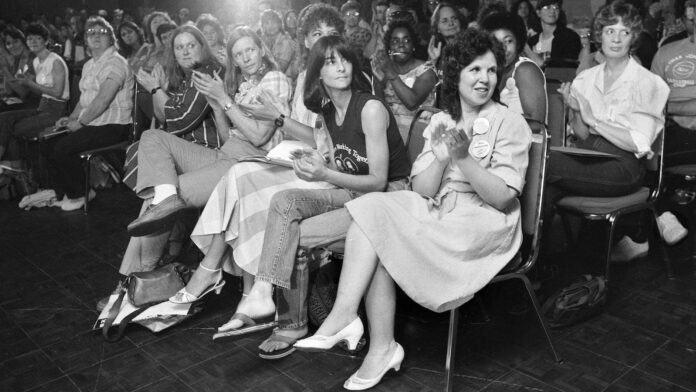CHARLESTON, W.Va. — Betty Jean Hall, an Appalachian lawyer and federal administrative law judge who paved the way for women to enter the coal mining workforce, has died. She was 78.
Hall died Friday in Cary, N.C., where she had lived since her retirement in 2019, her daughter Tiffany Olsen told The Associated Press on Monday. The Kentucky native earned her bachelor’s degree in 1968 from Berea before attending law school at the Antioch School of Law in Washington, D.C., and founding the Tennessee-based advocacy group Coal Employment Project in 1977.
Hall became interested in women pursuing careers in mining after learning that a Tennessee mining company wouldn’t even give women tours of its mines, let alone let them work in them, according to a 1979 profile in The New York Times.
Before Hall came on the scene, there were virtually no women working in coal mining, said Davitt McAteer, who served as deputy secretary of the U.S. Mine Safety and Health Administration under President Bill Clinton from 1993 to 2000.
There was a long-standing myth among miners that it was bad luck to go down a mine with a woman, McAteer said. The legend was that the mine is a woman, and to bring another woman down would make the mine jealous, he said.
The Coal Employment Project pressured mining companies in the U.S. to hire women by filing anti-discrimination lawsuits. McAteer said Hall had a simple, effective argument that coal companies couldn’t deny.
“Her message was always, ‘Mining is where the jobs are and women need to make money just like men.’ She said, ‘We need the money because we’re going to have children and we’re going to have families,’” McAteer said.
Hall told the Times in 1979 that if women had to choose between a $6,000-a-year salary in a factory and mining coal for $60 or more a day, “they would go into the mines.”
“Of course, coal mining is hard work,” she told the newspaper. “But so is housework and working in sewing workshops for minimum wage.”
Within a little over a year, the Coal Employment Project had filed a lawsuit against 153 coal companies that had gender bias in hiring. In December 1978, a settlement was reached with Consolidation Coal Company to pay $370,000 to 70 women who had not been offered jobs and to hire one woman for every four men.
As a result, U.S. coal companies had hired 830 women miners by the end of 1978, according to a history of the organization compiled by Hall. By the mid-1980s, that number had risen to more than 4,000.
Kipp Dawson, a former coal miner in Pennsylvania and a friend of Hall’s, told the Lexington Herald-Leader that the organization did more than just help women like her find jobs in the mining industry. The Coal Employment Project advocated for paid parental leave for miners, an effort that helped lead to the passage of the Family and Medical Leave Act of 1993. The organization also held trainings, annual conferences and support groups for women miners.
“We were taken more seriously because it wasn’t just one woman’s voice,” Dawson told the newspaper. “She was our mother.”
Hall led the Coal Employment Project from 1977 to 1988. In 2001, she was appointed an administrative law judge for the U.S. Department of Labor’s Benefits Review Board. There, she streamlined the process for deciding appeals of workers’ compensation claims and benefits for people with black lung disease, ensuring that injured miners received fair and timely reviews.
In a statement Monday, Cecil E. Roberts, president of the United Mine Workers of America International, called Hall a “remarkable woman” and a “fearless advocate who revolutionized the coal mining industry for women.”
“As we remember her incredible contributions, we remember the words of Mother Jones: ‘Whatever you fight, don’t be ladylike,’” Roberts said. “Betty Jean Hall embodied this spirit, breaking barriers and paving the way for countless women in the mining industry.”
Hall is survived by Olsen and her husband Kevin Olsen, her son, Timothy Burke, two grandchildren and a sister, Janet Smith.



